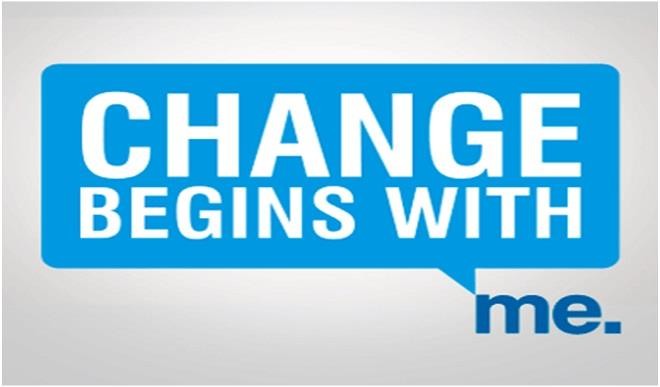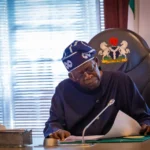
The honourable minister of information and national orientation, our beloved combative Lai Mohammed, has chosen a rather strange means of unveiling the essence of the change promised and propagated by his party and the government it brought into power. On September 8, the man invited President Buhari to a colourful ceremony in Abuja to launch a new slogan, Change Begins with me. The idea, not entirely unreasonable, is to underline our collective responsibility in bringing about change in our country. We thus become agents of the change promised by APC and its government. Now, as the poet would say, the APC change has a name and a local habitation.
Buhari, at the launch of the sloganeering campaign, was naturally enthusiastic about it. He, obviously, believes they have found the elusive formula for driving the change that would transform our country on which he staked his integrity during his electioneering campaigns last year.
Buhari said: “The campaign we are about to launch today is all about the need for us to see change, not merely in terms of our economic, social progress but in terms of our personal behaviour on how we conduct ourselves, engage our neighbours, friends, and generally, how we relate with the larger society in a positive and definitive way and manner that promotes our common destiny, change at home, change in the work place, change at traffic junction, change at traffic lights, etc.”
High-minded sentiments.
Mohammed said the new slogan was intended “to entrench the value of accountability, integrity and inculcate positive attitudinal change in Nigerians.”
Not unlikely. But if this is the path to the change promised by APC, then we must gird our loins and prepare for a long walk. The change will ride on the crest waves of the transformative power of four magical words: Change begins with me. Let us resist, if we can, the temptation to be cynical about the transformative power of those four words. Or even pooh-pooh the idea itself. It may not be entirely wise to dismiss the slogan, for at least one good reason. It is the business of man to constantly search for a transformative formula because all human societies, modern or primitive, developed, developing and under-developed, constantly need change. Evidence? We change our governments every four years to possibly infuse new blood and new thinking into human and resource management. Change always happens any way. Look in the mirror.
We flocked to Buhari last year because he offered himself as the agent of the change our country sorely needs. We believed he could because we had a taste of his regimentation through his war against indiscipline, WAI, 1984/85. We knew then, and we know now, that his responsibility would be to drive the change. But first, he has to articulate it and draw up a transparent road map for it. I wonder if Lai Mohammed and co have not unwisely put the cart before the horse. They are bound to dance on broken pieces of sloganeering. They may enjoy the dance for now but I fear that in the end their integrity might have dark spots on it. Perish the thought, my friend.
I wonder if this is all there is to the change promised by the party that has raised our hope and somehow captured our imagination in the future of our country. It is more likely that the government was forced to reach for this straw to mollify public feelings for its inexplicable tardiness in marketing its cardinal objective. In only one week of its launch, public reaction to it has generally come to this: Na slogan we go chop?
We did not vote for propaganda and sloganeering. They may have transformative powers but if you see a jobless man mouthing the slogan along the street, he creates the impression of being more psychotic than patriotic.
Leaders are the agents of change. We follow our leaders. It is not in the natural order of things that the tail should wag the dog. So, let our leaders make themselves visible in the vanguard of the sloganeering.
I offer three reasons for my informed scepticism about this nth attempt to recruit the Nigerian public into a propaganda war to better their lot. Firstly, sloganeering as a means of social re-orientation has become blasé. It had its days in the hands of the master craftsmen, the communists. Those days now sleep in the warm womb of time. No nation reaches out for a slogan any more for purposes of winning souls for its moral regeneration, if that.
Secondly, Nigeria has had a poor record of effecting or seeing change through such sloganeering and propaganda outfits. Thirdly, a moral regeneration campaign that puts the responsibility for change on individual conscience has as much chance of success as a possible campaign to canonize the devil.
Re-wind the clock back to the seventies and eighties and see what efforts we made through sloganeering to build a better Nigeria. President Shagari’s ethical revolution was the first direct attempt to use individual conscience as the beacon for attitudinal change. He created a ministry of national orientation to drive his ethical revolution. He did not fare well.
Obasanjo’s Operation Feed the Nation was arguably dreamed up to teach us the virtues of agriculture and to make us take pride in occasionally dirtying our hands to please our stomach. Shagari’s Green Revolution and a host of other attempts, the last before this being the late Professor Dora Akunyili’s attempt to celebrate our country as great and our people as good people, warts and all. All these were great and honest attempts to corral us into being the architects of our country’s destiny. My pet theory is that they failed to achieve their objectives because they were not anchored on a platform that should drive them.
I fear that this new sloganeering would do a mighty battle with the mountain range of public cynicism. It faces two obvious problems. First, it is not the change that Nigerians voted for last year or expected. But truth be told, even now we do not really know the change they are talking about. The change has never been articulated. It does not do the government much good to wake one day and latch on to sloganeering as the change it promised. It would be stretching it to suggest that putting the responsibility for change on individual Nigerians is the way to go. The new outfit rests on nothing that I can see. The current euphoria is bound to bottom out, leaving the expensive billboards as township beautification projects.
What this country needs is regimentation, not empty sloganeering. Leaders drive regimentation by demonstrating their discipline, their incorruptibility, their obedience to the rule of law, their respect for the rights of others, including and especially the poor. WAI proved that Nigerians, like other nationals,would be willing to be regimented provided they can trust those driving the regimentation and see the road map clearly.
No nation ever gets it right without regimentation. Sloganeering is the visible face of regimentation. Respect for individual and collective rights is a function of regimentation; respect for the rule of law is a function of regimentation. There is no country, east or west, that has made it without being fully regimented. See why we continue to beat about the bush?
Time to embrace regimentation. No country is a product of individual conscience. If Change begins with me is not anchored on an articulated national programme of regimentation, complete with reward and punitive measures, then I fear this slogan too would miss the boat. It is folly to trust individual conscience to drive societal change.

 Join Daily Trust WhatsApp Community For Quick Access To News and Happenings Around You.
Join Daily Trust WhatsApp Community For Quick Access To News and Happenings Around You.


